NYC northern lights forecast: Will solar storm shine aurora over Tri-State Saturday?
NEW YORK - New York City, you may be in for a treat tonight: a rare glimpse of the northern lights!
An unusually powerful solar storm hit Earth on Friday, producing auroras across the U.S. and as far south as Florida.
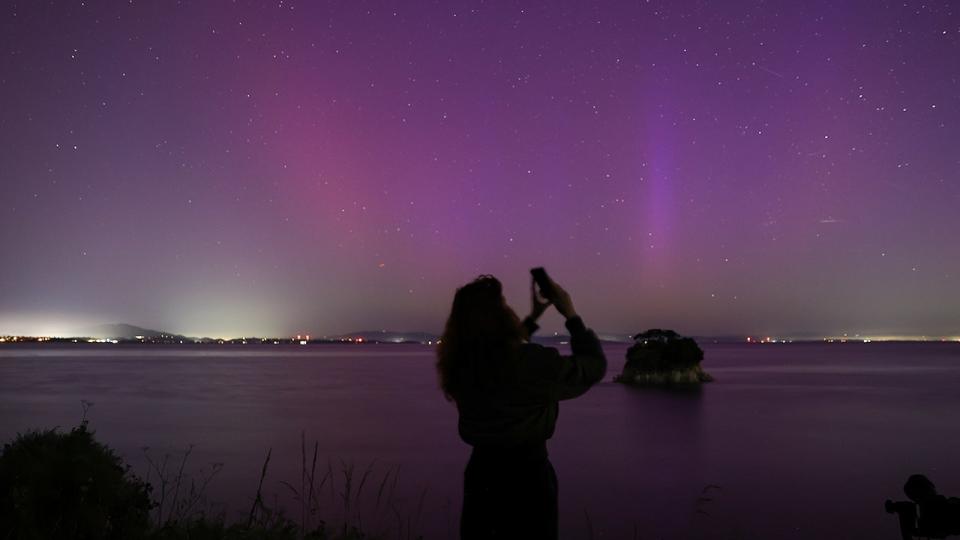
No thanks to cloud cover, NYC missed out on the solar spectacle Friday night, but will the weather forecast let up this weekend? Will the New York City area see the northern lights? How long will the solar storm last, and what even is it?
Here's what you need to know:
What is a solar storm? How long will this one last?
The U.S. National Oceanic and Atmospheric Administration issued a rare severe geomagnetic storm warning when a solar outburst reached Earth on Friday afternoon.
NOAA’s Space Weather Prediction Center said satellites observed conditions that reached level 5 on their 5-point scale of geomagnetic activity on Friday evening, noted as an "extreme" event and the first such storm to reach that level since October 2003.
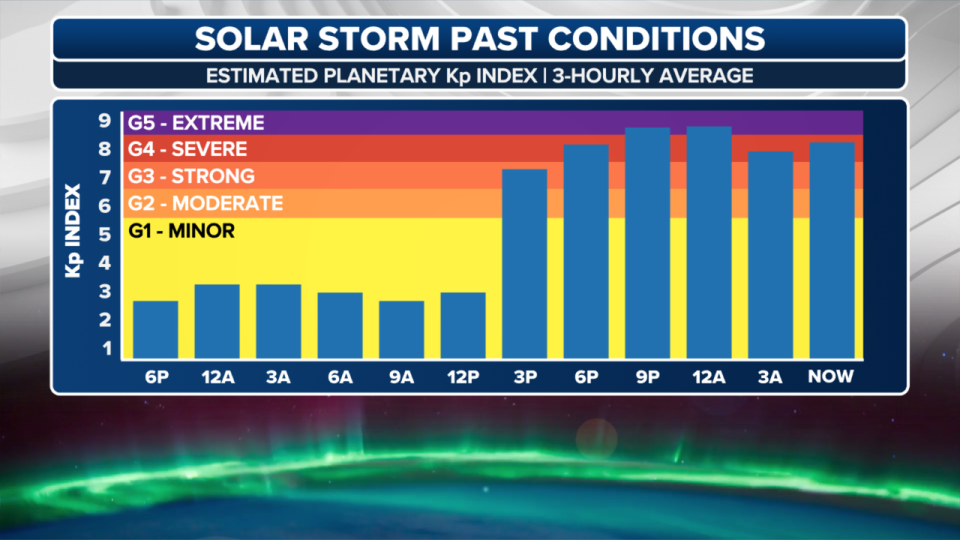
The sun has produced strong solar flares since Wednesday, resulting in at least seven outbursts of plasma. Each eruption, known as a coronal mass ejection, can contain billions of tons of plasma and magnetic field from the sun’s outer atmosphere, or corona.
"When it hits the Earth's atmosphere and collides with the oxygen and nitrogen in the atmosphere, that's how you get these little colors, what we call the aurora borealis," said FOX 5 NY's Nick Gregory.
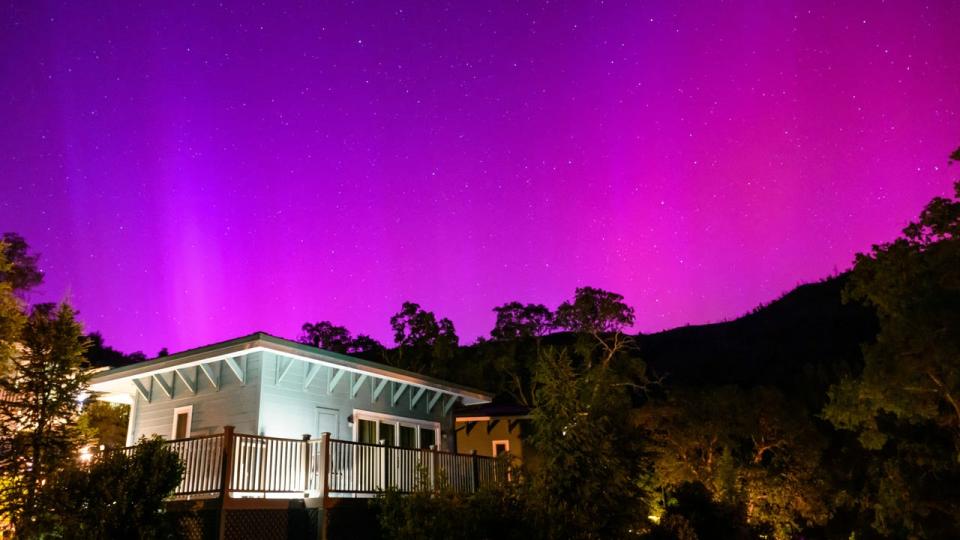
Oxygen produces red and green lights, while nitrogen shines with pink and blue hues, he said.
These solar flares will be directed at Earth between now and Sunday.
Can you see the northern lights in New York this weekend?
New York City is far north enough for stargazers to see the dazzling aurora from this rare solar storm. Yet the Tri-State area first must overcome some not-so-rare obstacles: Cloud cover and light pollution.
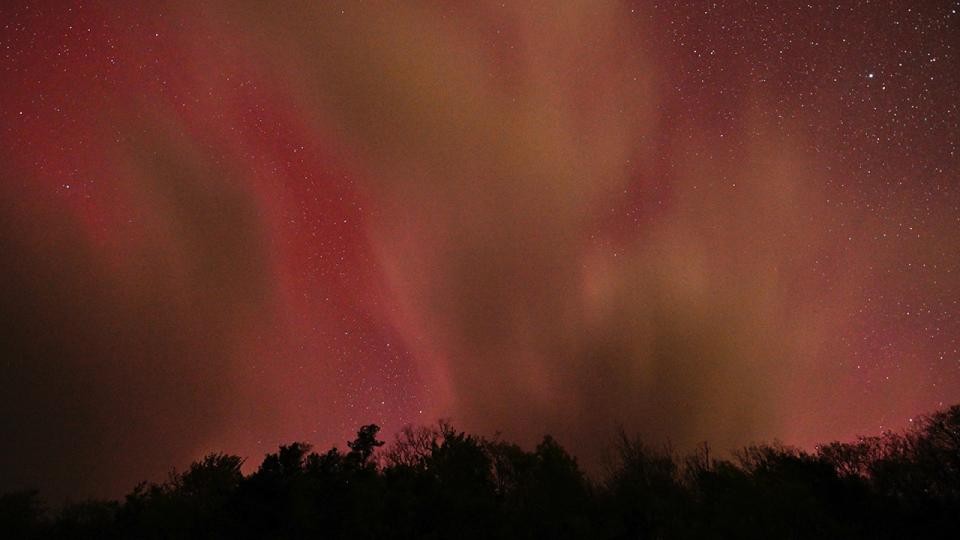
On Saturday, expect clear skies throughout the day. If you haven't thrown away your eclipse glasses, make sure to take them outside! Sunspot clusters are so big that viewers on Earth may be able to see them with appropriate protection.
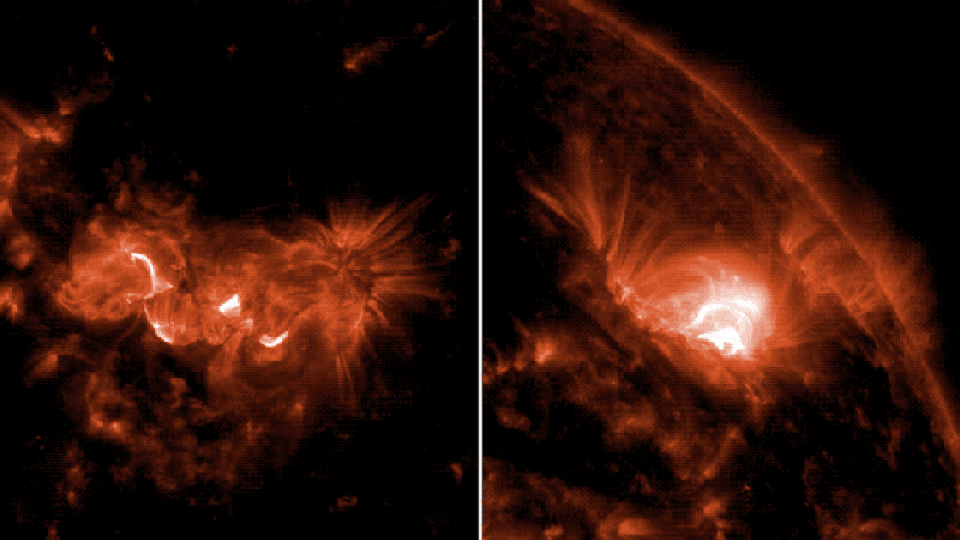
Yet clouds will start to build up in the late afternoon and early evening. Expect showers overnight.
This means aurora peepers may have the best chance of seeing the lights after sunset, shortly after twilight ends.
The best aurora views may come from phone cameras, which are better at capturing light than the naked eye. Snap a picture of the sky and "there might be actually a nice little treat there for you," said Mike Bettwy, operations chief for NOAA’s Space Weather Prediction Center.
By Sunday, New Yorkers have no chance of catching the northern lights. Expect storms and cool temperatures for Mother's Day.
Will NYC experience disruptions?
Aside from brilliant and widespread displays of the aurora, geomagnetic storms can impact infrastructure in near-Earth orbit and on Earth’s surface, potentially disrupting communications, the electric power grid, navigation, radio and satellite operations, FOX Weather reports.
"This particular geomagnetic storm certainly is robust enough and has the potency to possibly knock out some breakers and cause power outages," Joe Rao, an astronomer at the Hayden Planetarium, told FOX 5 NY.
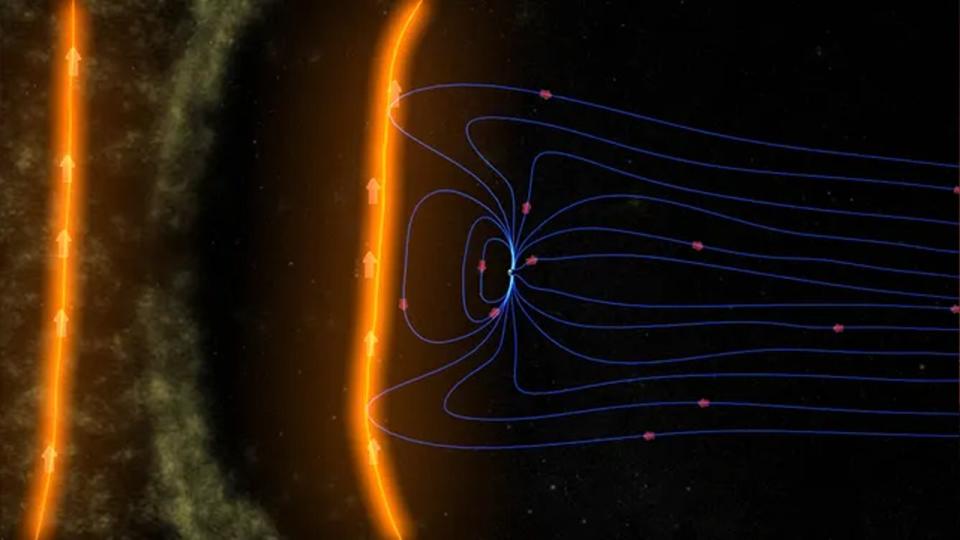
Power outages in New York City are unlikely, astronomers say, but conditions should be monitored. An extreme geomagnetic storm in 2003, for example, took out power in Sweden and damaged power transformers in South Africa.
No immediate disruptions to power and communications from this storm have been reported so far.
FOX Weather and the Associated Press contributed to this report.

